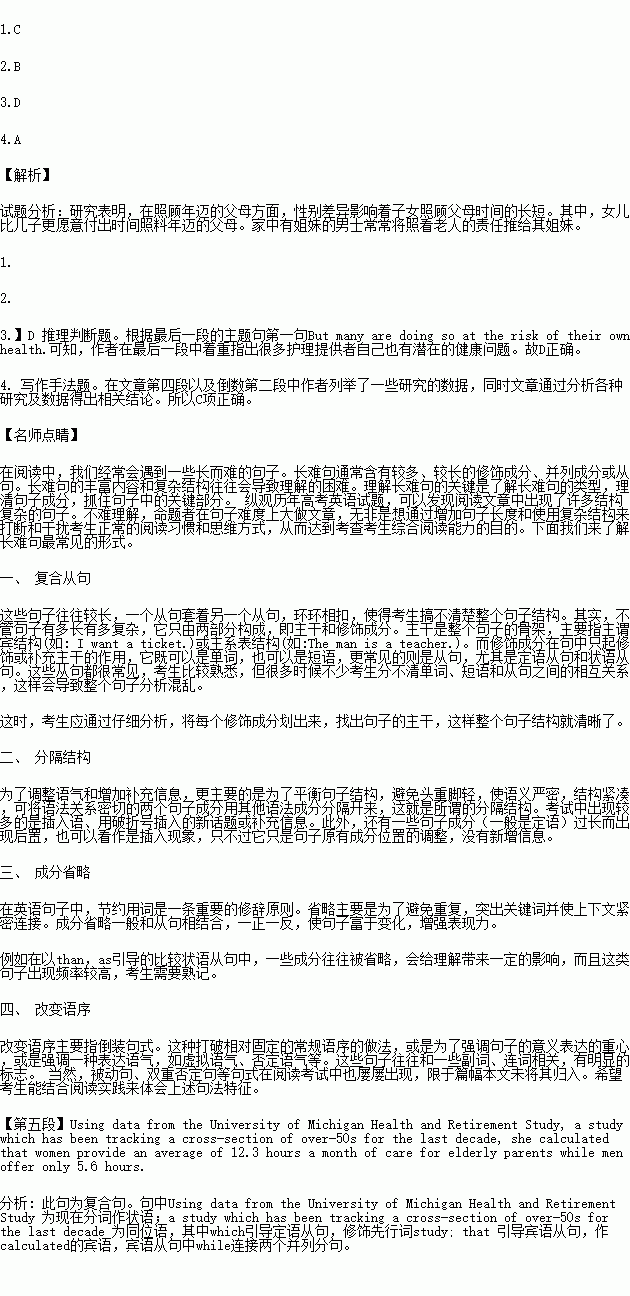题目内容
According to a new US study, couples who expect their children to help care for them in old age should hope they have daughters because they are likely to be twice as attentive overall.
The research by Angelina Grigoryeva, a sociologist at Princeton University, found that, while women provide as much care for their elderly parents as they can manage, men do as little as they can get away with and often leave it to female family members.
Her analysis of the family networks of 26,000 older Americans concluded that gender(性别) is the most important predictor(预示物) of whether or not people will actively care for elderly parents.
In a paper being presented at the annual conference of the American Sociological Association in San Francisco, she concludes that simply having a sister makes men statistically likely provide less care.
Using data from the University of Michigan Health and Retirement Study, a study which has been tracking a cross-section of over-50s for the last decade, she calculated that women provide an average of 12.3 hours a month of care for elderly parents while men offer only 5.6 hours.
“Sons reduce their relative care-giving efforts when they have a sister, while daughters increase theirs when they have a brother.”
“This suggests that sons pass on parent care-giving responsibilities to their sisters.”
In the UK, the 2011 census(人口普查) showed that there are now around 6.5 million people with caring responsibilities, a figure which has risen by a tenth in a decade.
But many are doing so at the risk of their own health. The census showed that those who provide 50 hours or more of care a week while trying to hold down a full-time job are three times more likely to be struggling with ill health than their working counterparts(相对应的人) who are not carers.
1.In the text, what’s the most important factor to predict if people will actively care for the elderly?
A. Career. B. Education.
C. Gender. D. Family networks.
2.The US study finds that _______.
A. sons are twice likely as daughters to care for parents in old age
B. having a sister makes men less likely to do their fair share
C. sons and daughters seem to give equal care to their parents
D. sons are unwilling to leave care-giving responsibilities to female family members
3.What does the author stress in the last paragraph?
A. People should give up their jobs to care for the elderly.
B. Many care providers work longer hours than others.
C. People shouldn’t pass on caring responsibilities to others.
D. Many care providers have potential health problems.
4.The author develops the text by _______.
A. analyzing various research and data
B. describing people’s experiences
C. explaining social networks of careers
D. comparing different gender behavior
 阅读快车系列答案
阅读快车系列答案
